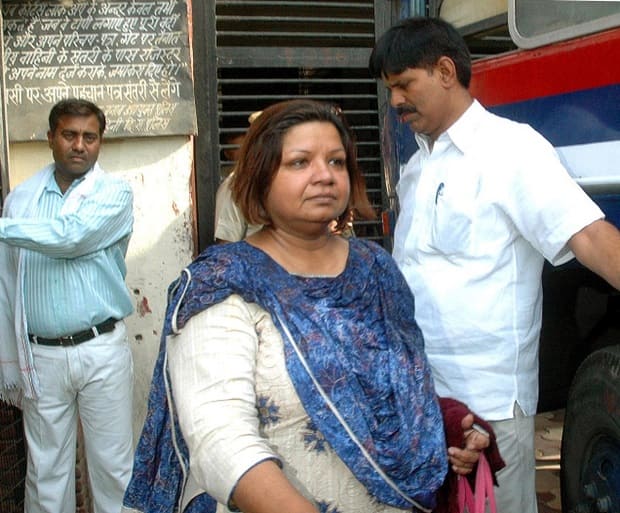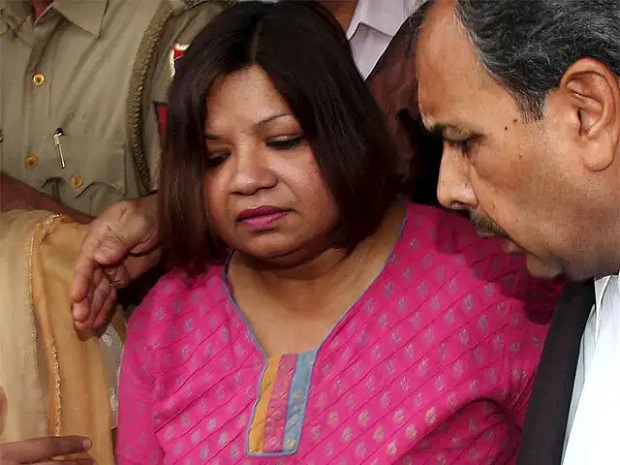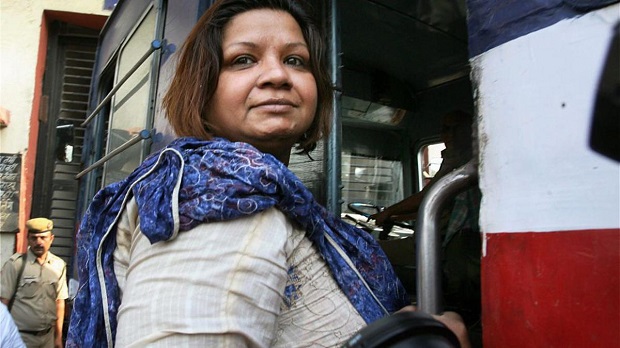Soon after the Pahalgam terror attack, tensions between India and Pakistan have only intensified. The arrest of content creator Jyoti Malhotra, along with six other Indians accused of spying for Pakistan, has further fueled concerns. Amid this, an old tale has resurfaced of Madhuri Gupta, an Indian diplomat in Islamabad who allegedly turned spy for Pakistan, all for love. Her story is once again making headlines, reflecting the complex web of espionage, emotions, and betrayal.
1. Who was Madhuri Gupta?
Madhuri Gupta was an Indian diplomat who became the headline of all media outlets back in the early 2000s. Now, being a diplomat is not an easy task. It demands intelligence, cultural knowledge, and the ability to handle complex situations calmly. Madhuri had all of that and more. She was well-read, fluent in Urdu, and deeply interested in history and Sufi literature. But what made her an asset to India eventually became part of her downfall. Despite nearly three decades of loyal service, Madhuri ended up turning against her own country, making her one of the most shocking cases of espionage in India’s diplomatic history.
ADVERTISEMENT
Madhuri joined the Ministry of External Affairs in the early 1980s as part of the Indian Foreign Service’s Grade B cadre, which by the way is not a cakewalk. While she wasn’t a top-ranking diplomat, she worked silently behind the scenes, supporting India’s missions abroad in places like Iraq, Liberia, Malaysia, and Croatia.
In 2007–2008, she was posted to the Indian High Commission in Islamabad as Second Secretary (Press & Information).
ADVERTISEMENT
2. Madhuri Gupta: a mole inside India’s High Commission
In early 2010, just over a year after the devastating 26/11 attacks, India’s security agencies were on high alert. During this tense period, Rajiv Mathur, then chief of the Intelligence Bureau (IB), received highly sensitive intelligence and it was that someone from the Indian High Commission in Islamabad was secretly passing information to Pakistan’s spy agency, the ISI. Suspicion soon fell on Madhuri Gupta, a second secretary at the High Commission.
To catch her red-handed, a smart strategy was adopted. Gupta was given false but seemingly important information through channels she could access. This trap worked as the fake intel quickly surfaced with the ISI, confirming that Gupta had indeed leaked it.
The entire operation was kept extremely confidential. Only a few top officials in India knew about the investigation, including RAW (Research and Analysis Wing) chief KC Verma and Home Secretary GK Pillai. No information about the probe was shared with anyone in Pakistan. A three-member committee had initially advised against arresting her right away, suggesting continued surveillance for a few more weeks. This allowed time to trace the movement of the planted information and confirm that Gupta was the leak.
Advertisment
3. She was arrested on April 22, 2010
Madhuri Gupta was cleverly lured back to India under the pretext of helping with media preparations for the upcoming SAARC summit in Bhutan. She landed in Delhi on April 21, 2010, and spent the night at her West Delhi residence. The next day, on April 22, 2010, she walked into the Ministry of External Affairs office in South Block, thinking everything was normal. She was scheduled to meet the then additional secretary, Ashok Tomar.
But as soon as she arrived, a call was made to the Special Cell of Delhi Police, who had been briefed in advance. Madhuri Gupta was calmly arrested for passing sensitive information to Pakistan’s ISI. Shockingly, she didn’t resist or act surprised. Instead, with a smirk on her face, she looked at the officers and said,
“What took you so long?”
Indeed a chilling confession of her betrayal.
Also read: Real Life Stories of Indian Spies That Will Make Every Indian Proud
ADVERTISEMENT
4. She stayed for 21 months in Jail and then was granted a bail
After her arrest in April 2010, Madhuri Gupta was sent to Delhi’s Tihar Jail, where she remained in custody for nearly 21 months. During this time, she was formally charged under two sections of the Official Secrets Act (OSA) of 1923, which carried a maximum sentence of three years. Despite the seriousness of the accusations, the trial did not begin immediately, and she continued to stay behind bars as the investigation and legal formalities dragged on.
It wasn’t until 2012 , almost two years after her arrest , that her trial finally began. By then, Gupta had already spent a significant amount of time in jail without a verdict. Considering the delay and the time she had already served, she was eventually granted bail. However, the case was far from over, as legal proceedings continued in the years that followed.
5. What all Madhuri Gupta leaked to Pakistan
During the trials, she admitted to leaking highly sensitive and classified information to Pakistan’s intelligence agency, ISI. Her betrayal wasn’t just emotional, it was deeply damaging to India’s national security. According to investigators, Madhuri had shared the names, email IDs, passwords, job roles, and movements of Indian officials working at the High Commission in Islamabad.
Most dangerously, she also revealed the identities of Indian intelligence officers, including those linked to RAW, who were working undercover in Pakistan. She didn’t stop there, she even disclosed secret routes between India and Pakistan, and internal assessments meant only for the Ministry of External Affairs (MEA).
Authorities recovered 73 emails out of which 54 were sent and 19 were received from an email ID, atlastrao@gmail.com, which Madhuri used to communicate with her Pakistani handlers. This ID was reportedly created by one of her contacts in ISI, Mubshar Raza Rana. Another contact, Jamshed (also known as Jim), played a key role in collecting the information from her.
The content of these emails, printed across over 300 pages, clearly proved her involvement in espionage. While some experts tried to downplay the importance of the data leaked, the court strongly disagreed.
6. Betrayed her country for a false love
After serving India for 27 years, Madhuri Gupta betrayed her country by getting involved in an emotional trap disguised as love. She became involved with Jamshed (Jim), a Pakistani man who was secretly working for Pakistan’s intelligence agency, the ISI. She allegedly believed that their relationship would lead to marriage and trusted him deeply. However, Jim’s real intention was to manipulate her into sharing sensitive information about India’s diplomatic and intelligence activities.
ADVERTISEMENT
Slowly, he gained her confidence and used the relationship to make her leak confidential secrets that should have remained protected. In an email later recovered from her account, Madhuri wrote,
“I am not used to just sitting at home in purdah. After marriage he will neither socialise himself nor let me socialise with anyone.”
Despite these concerns, she continued to pass on important information to Pakistan’s intelligence agency. Her betrayal was not only a failure of loyalty to her country but also a misuse of the trust given to her as an experienced diplomat, all because of a dangerous emotional deception.
7. Her Urdu prowess made her assign to Islamabad
Madhuri Gupta wanted to start her career with a posting in Moscow, and her mentor there supported her wish. However, because of her strong knowledge of Urdu, the Ministry of External Affairs assigned her to Islamabad instead. Her main role was to monitor Urdu newspapers in Pakistan and prepare daily reports for senior officials. Though she wasn’t directly involved in defence or confidential diplomatic meetings, her close proximity to sensitive discussions and intelligence officers gave her indirect access to high-level information.
If her wish to join Moscow had been granted, things might have been very different. She would have worked far from Pakistan’s intelligence networks and might never have been drawn into the dangerous situation that eventually led to her betraying India.
8. In 2018, the court found her guilty
In 2018, after years of legal proceedings, a Delhi court finally found her guilty of criminal conspiracy and spying for Pakistan. The court stated that even though the leaked information wasn’t entirely defence-related, it was still extremely useful to Pakistan and posed a threat to India’s intelligence operations in Islamabad. In short, Madhuri Gupta had given away sensitive information that could seriously damage India’s security interests. She betrayed her country as a diplomat.
During her working days, Madhuri lived a quiet, solitary life. She was unmarried, had no close family nearby, and described herself as someone who loved her work. Her intellectual side was well-known, she was pursuing a PhD on the Persian poet Rumi and had a deep love for Sufi thought. While some admired her, others kept their distance, calling her reserved and hard to approach.
This mix of solitude, intellect, and limited recognition may have made her vulnerable to emotional manipulation. But to say that she willingly betrayer her own nation also is not wrong. What are your thoughts on the case of Madhuri Gupta? Do share via the comments below.





